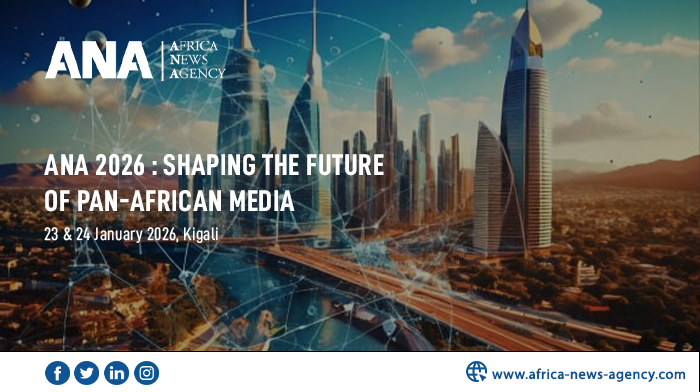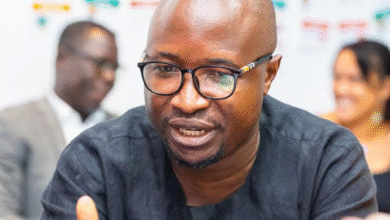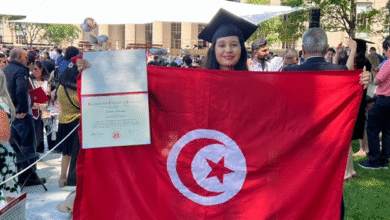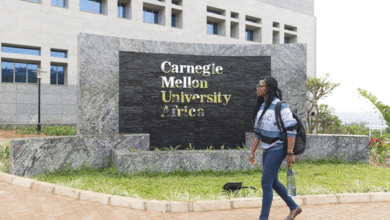Football : major economic impacts
Football remains undeniably the king of sports in Africa, generating significant economic returns for host countries. In 2024, Côte d'Ivoire hosted the 34th edition of the Africa Cup of Nations (AFCON), an event that had a major impact on the country's economy, reinforcing its status as the region's leading economic power. Morocco, which will host the next AFCON and part of the 2030 FIFA World Cup, expects equally large, if not greater, returns…

By Bilkyss Mentari
As Côte d’Ivoire prepared to host the second AFCON in its history, after the one in 1984, President Alassane Ouattara stated that it would be « the best in history. » He had made the success of the event a political priority. While the country’s authorities aimed to make it « a diplomatic showcase and a lever of influence, » the Ivorian AFCON was also expected to « serve as a growth engine for the country. » « Sport is a tool of polymorphic power, which can, in particular, be used to attract investors, » reminds Lukas Aubin, a specialist in the geopolitics of sport at the Institute of International and Strategic Relations (IRIS).
Over 500 billion CFA invested

To further solidify its regional economic leadership, Côte d’Ivoire undertook major projects. In total, the government invested over 500 billion CFA (around 760 million euros). This resulted in the construction of four « state-of-the-art » stadiums in Ebimpé (on the outskirts of Abidjan), San Pedro (southwest), Yamoussoukro (center), and Korhogo (north). Additionally, the government renovated two other stadiums in southern Abidjan and in the center of Bouaké, while 24 training fields were developed.
The Ivorian government did not only invest in sports. Emphasis was also placed on improving the quality of road connections between host cities to facilitate travel for teams and supporters. For instance, the road linking Abidjan to San Pedro was modernized, and the Abidjan-Yamoussoukro highway was extended to Bouaké. According to a source at the Ministry of Public Works, « all sectors of the construction industry benefited from this AFCON. The steel mills, in particular, are running at full capacity. »
The biggest winner from hosting the 2024 AFCON in Côte d’Ivoire is the tourism sector. The authorities had made this a priority since the launch of the « Sublime Côte d’Ivoire » program in 2019. In total, 3,200 billion CFA (around 4.8 billion euros) were invested. This sum resulted from a partnership between the state, which invested 1,500 billion CFA (2.2 billion euros), and the private sector, which invested 1,700 billion CFA (2.6 billion euros). The tourism development program around AFCON 2023 aimed to position Côte d’Ivoire among the top 5 African destinations. The country aimed to become a « leading African business tourism hub. » As part of the « Sublime Côte d’Ivoire » program, besides modernizing beach resorts and developing tourist circuits, the country embarked on massive real estate projects. Notable developments include the luxurious « Serena Village » hotel complex in Abidjan and the « Abidjan Business City » tower, the future epicenter of Ivorian and regional economies.
The state’s commitment to improving Côte d’Ivoire’s image during AFCON has created wealth and employment
At the time of assessment, according to the National Tourism Office, the competition attracted tens of thousands of visitors who discovered « the charms and attractions of the country. » This was facilitated by a mobile app, « Pass Touristique, » developed to list sites to visit and ease reservations. « All sectors, from hospitality to restaurants, to transportation, worked hard to be ready. This dynamism has positive repercussions on employment, » highlights Ladji Karamoko Ouattara, a researcher and lecturer in international relations.
Despite the optimism surrounding these investments, some experts remain cautious. « Once the tourists leave and the celebrations end, some fear the economic machine may lose momentum, » warns Laurice Serge Eteki Eloundou, a Cameroonian expert in economic development, echoing the challenging situation faced by Cameroon after hosting AFCON 2022.
Morocco could see an influx of 1.5 million additional visitors during the 2030 World Cup, generating between 2 and 3 billion dollars in revenue

While Côte d’Ivoire has successfully capitalized on its hosting, the next step is in Morocco, which will host the 2025 Africa Cup of Nations and the 2030 World Cup, jointly with Spain and Portugal. These two events represent a major opportunity to boost the kingdom’s economy, particularly through tourism, but also due to massive investments in sports infrastructure and transportation. A report from the Governmental Work Observatory (OTRAGO) indicates that Morocco could see an influx of 1.5 million additional visitors during the 2030 World Cup, generating between 2 and 3 billion dollars in revenue.
In addition to tourism, hosting the 2030 World Cup is expected to lead to massive investments in sports infrastructure and transportation, including a high-speed rail network and the construction of new stadiums. The total cost of these projects could range from 10 to 12 billion dollars. These investments are not limited to the event itself but are expected to have long-term economic benefits, including a 0.5 to 1% annual increase in Morocco’s GDP. The employment impact, with the creation of 50,000 to 80,000 jobs, also promises opportunities for young people in various sectors, from hospitality to marketing.
However, the challenges are considerable. Debt management, digitalization of services, and competition with Spain and Portugal in event management will be crucial issues. Morocco must also ensure that the economic benefits of these competitions lead to sustainable development, to avoid the pitfalls of purely event-driven growth, as experienced by some other African countries.







